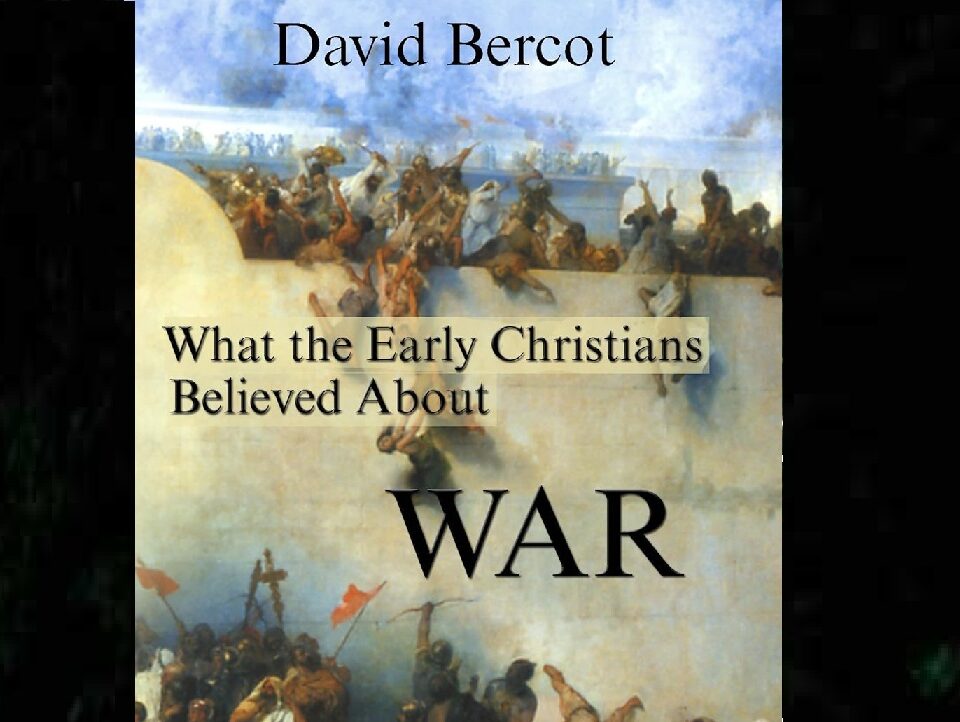Thesis: Jesus practiced love of enemy to his own death and the NT presents this teaching as an unqualified commandment to be obeyed by his followers: Mat 5.39; 44. This is in stark contrast to Jesus’ own Jewish Torah regarding “holy war” [Deut. 20] and lethal self-defense [Ex 22.2].
Furthermore, Pacifist movements (mainly from the last century) and their practice have misrepresented the New Testament’s prohibition on the use of lethal violence for Christians.
The Paradigm Shift: Torah vs Beatitudes
The Torah “prohibits murder, but Jesus forbids even anger. [In Mat 5.38-42] Jesus actually overrules the Torah. Deuteronomy insists, ‘Show no pity,’ Jesus says, ‘Do not resist an evildoer.’ [Torah’s] concern for maintaining stability and justice is supplanted by Jesus’ concern to encourage nonviolent, long-suffering generosity on the part of those who are wronged. This extraordinary change of emphasis constitutes a paradigm shift that effectually undermines the Torah’s teaching about just punishment for offenders.”[1]
Most NT lethal violence is prophetic, i.e., Apocalyptic/Judgment Parables:
- Christians “destroy” the enemy at the Feast, Matt 22.1-10;
- The wicked vineyard tenants are “killed,” Luke 20.9-16, Mat 21.33-41;
- The talented Christians “slaughter” the enemy, Lk 19.12-27;
- The goats suffer “eternal punishment,” Mat 25.31-46;
- Unfaithful servants are “cut in two” by the faithful: Mat 24:42-51; cp. Lk 12.46;
- False prophets are “cut down/burned,” Mat 7.19;
- The whole book of Apocalypse!
‘The wicked were squeezed like grapes; their blood turned into a river 180 miles long, deep enough to cover a horse.’ Rev. 14.20
Pacifism not Passivism; Nonresistance not Noninvolvement
Dictionary.com
- Pacifism: “opposition to war or violence of any kind.”
- Nonresistance: “the policy or practice of not resisting violence or established authority, even when tyrannical, by force.”
Misrepresentations that Pacifism is:
- Total Inaction
- “turn the other cheek”
- Cowardice
- Let the State “do our dirty work”
- Unpatriotic
- Become an “enemy of the State”
- No Love for anyone.
“The only thing necessary for the triumph of evil is for good men to do nothing.”
The ABCs of the NT
- Active: flee.
- Every Action must be done with love: 1Cor 16.14
- Be Creative:
- Talk: argue/reason/pray: Luke 16.1-8; John 8.7-83.
- Call on the proper authorities:
- “Established by God for your own good!” 13
The Church is not the State!
“It’s true that even just war is attended with evils & so likewise is the administration of government and of justice. [But] they are means by which greater evils are averted. [To prevent this we] must submit to the use of those means, whether agreeable or otherwise.”[2]
“For Augustine the Christian can kill out of love. This might seem like a recipe for hypocrisy, the overwrought distinctions of which can be exposed with little more than a bumper sticker: ‘When Jesus said love your enemies, I’m pretty sure he meant don’t kill them’.”[3]
[1] Hays, Moral Vision of the New Testament, pp. 324-25.
[2] The Life of John Jay, Volume 2, p 396.
[3] Mahn, Becoming a Christian in Christendom, p 254.




